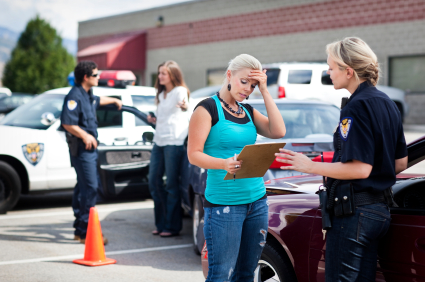
Did you know that Florida law considers communications between police officers and parties involved in motor vehicle accidents to be privileged? In other words, statements made to the police cannot be used against you. This is called the Accident Report Privilege. Under Florida Statute 316.066(4), accident reports are not admissible as evidence in any trial, civil or criminal nor are any statements made by the participants in the accident to the police officer investigating the accident. This subsection states:
“Each accident report made by a person involved in an accident and any statement made by such person to a law enforcement officer for the purpose of completing an accident report required by this section shall be without prejudice to the individual so reporting. No such report or statement shall be used as evidence in any trial, civil or criminal. The result of breath, urine, and blood tests administered as provided in §316.1932 or §316.1933 are not confidential and shall be admissible into evidence in accordance with the provisions of §316.1934.”
The reason behind this privilege is to allow for candid reporting about an automobile crash to the investigating officer. This helps the investigating officer determine who is at fault for the accident. The idea behind the privilege is to allow for the reporting person to feel free to speak to the officer without worrying that their words will later be used against them in a civil or criminal trial. The accident report privilege covers any communication made to the police officer by anyone involved in a motor vehicle accident. This includes the driver, the owner of the vehicle, and the occupants of the vehicle at the time of the accident. The privilege applies even if someone listening in as the officer takes the information tries to testify about what that person told the officer.
Be aware though that not all statements made to the officer are privileged, nor are all facts that are ultimately put in the accident report. The privilege does not cover conversations with eyewitnesses who were not in the accident; like bystanders. It also doesn’t protect against the revelation of “factual findings” made by the officer investigating the crash such as the results of field sobriety tests, breath tests, and blood tests. So, the results of these tests are not confidential communications and can be used against you as evidence in civil and criminal cases. The police officer’s own observations at the scene of the physical evidence or non-communication related evidence are also not protected by privilege. So, the recording of measurements, any road or skid marks caused by the vehicles, final rest places of the vehicles, road debris or persons involved, and other physical findings are not privileged under the statute and the officer can testify about those findings.
Remember you have rights that are spelled out under the law. If you are involved in a crash and want to know more about your rights please give us a call. All initial consultations are always free with no obligation. Rader Law Group, P.L. can be reached at (954) 913-CASE (2273) or visit us at www.RaderLawGroup.com .
